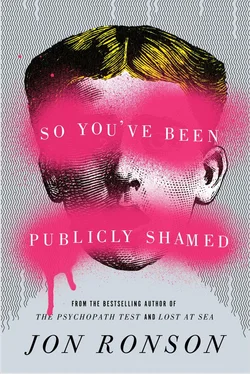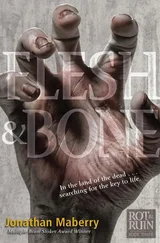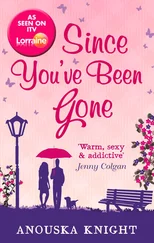The first chapter, “Bob Dylan’s Brain,” piqued Michael’s interest, as he was a keen Dylanologist. Jonah Lehrer was reconstructing a critical moment in Dylan’s creative career — the thought process that led him to write “Like a Rolling Stone.”
—
It was May 1965 and Dylan was bored, weary from a grueling tour, “skinny from insomnia and pills,” sick of his music, thinking he had nothing left to say. As Jonah Lehrer writes:
The only thing he was sure of was that this life couldn’t last. Whenever Dylan read about himself in the newspaper he made the same observation: “God, I’m glad I’m not me,” he said. “I’m glad I’m not that .”
So Dylan told his manager he was quitting the music business. He moved to a tiny cabin in Woodstock, New York. His plan was to perhaps write a novel.
But then, just when Dylan was most determined to stop creating music, he was overcome with a strange feeling.
“It’s a hard thing to describe,” Dylan would later remember. “It’s just this sense that you got something to say.”
It was no wonder Imagine had become such a bestseller. Who wouldn’t want to read that if they’re creatively blocked and feeling hopeless they’re just like Bob Dylan immediately before he wrote “Like a Rolling Stone”?
—
Michael Moynihan, I should explain, hadn’t downloaded Jonah Lehrer’s book because he was blocked and needed inspirational advice about how to write a Washington Post blog. Jonah Lehrer had recently been embroiled in a minor scandal and Michael was considering blogging about it. Some columns he had written for The New Yorker had, it turned out, been recycled from columns he’d published months earlier in The Wall Street Journal . Michael was considering blogging on how “self-plagiarism” was considered less of a crime in Britain than in America and what that said about the two cultures.
But now Michael suddenly stopped reading. He went back a sentence.
“It’s a hard thing to describe,” Dylan would later remember. “It’s just this sense that you got something to say.”
Michael narrowed his eyes. When the fuck did Bob Dylan say that? he thought.
“What made you suspicious?” I asked Michael. The two of us were eating lunch at the Cookshop restaurant in Manhattan’s Chelsea district. Michael was handsome and fidgety. His eyes were pale and darting like a husky’s.
“It just didn’t sound like Dylan,” he said. “In that period, in every interview Dylan did, he was a total asshole to the interviewer. This sounded like a Dylan self-help book.”
And so, on his sofa, Michael scanned back a few paragraphs.
Whenever Dylan read about himself in the newspaper, he made the same observation: “God, I’m glad I’m not me,” he said. “I’m glad I’m not that .”
In D. A. Pennebaker’s documentary Dont Look Back (the missing apostrophe was the director’s idea), Dylan reads an article about himself: “Puffing heavily on a cigarette, he smokes 80 a day…” Dylan laughs, “God, I’m glad I’m not me.”
How did Jonah Lehrer know that Dylan said this whenever he read about himself in the paper? Michael thought. Where did “whenever” come from? Plus, “God, I’m glad I’m not me” is verifiable, but “I’m glad I’m not that ”? When did he say, “I’m glad I’m not that ?” Where did Jonah Lehrer get “I’m glad I’m not that ”?
And so Michael Moynihan e-mailed Jonah Lehrer.
I picked up your book and as an obsessive Dylan nerd eagerly read the first chapter… I’m pretty familiar with the Dylan canon and there were a few quotes I was slightly confused by and couldn’t locate.
This was Michael’s first e-mail to Jonah Lehrer. He was reading it to me back home in his Fort Greene living room. Joanne sat with us. There were toys scattered around.
By the time Michael e-mailed Jonah on July 7, he’d pinpointed six suspicious Dylan quotes, including “It’s just this sense that you got something to say,” “I’m glad I’m not that ,” and this angry retort to prying journalists: “I’ve got nothing to say about these things I write. I just write them. There’s no great message. Stop asking me to explain.”
Dylan did once verifiably say in Dont Look Back , “I’ve got nothing to say about these things I write. I just write them. There’s no great message.”
But there was no “Stop asking me to explain.”
Michael mentioned to Jonah his deadline — he was blogging for The Washington Post for ten days — and then he pressed send.
—
Jonah e-mailed Michael back twice the next day. His e-mails sounded friendly, professional, businesslike, maybe a little superior. His air was that of a smart young academic understanding Michael’s questions and promising to answer them during an appropriate moment in his schedule. Which would be in eleven days. He was on vacation in Northern California for ten days. His files were at his home, a seven-hour drive away. He didn’t want to disrupt his vacation by driving fourteen hours to check his files. If Michael could wait ten days, Jonah would send him detailed notes.
Michael smiled when he read out that part of Jonah’s e-mail to me. Eleven days was quite the convenient vacation length given the duration of Michael’s Washington Post contract.
Still, Jonah said he’d try to answer Michael’s questions off the top of his head.
“And this,” Michael said, “was where it all began to unravel for him. This is where he makes his first underplayed lie. He’s hesitating. ‘Do I make this lie?’”
Jonah made the lie.
“I got a little bit of help,” he wrote, “from one of Dylan’s managers.”
This manager had given Jonah access to previously unreleased original transcripts of Dylan interviews. If there were any discrepancies with common references on the Web, that was why.
Jonah’s e-mails continued in this vein for several paragraphs: Dylan had told a radio interviewer to “stop asking me to explain” in 1995. The interview was transcribed within the pages of a rare multivolume anthology called The Fiddler Now Upspoke: A Collection of Bob Dylan’s Interviews, Press Conferences and the Like from Throughout the Master’s Career . And so on. Then Jonah thanked Michael for his interest, signed off, and at the bottom of the e-mails were the words “Sent from my iPhone.”
“Sent from his iPhone,” Michael said. “A rather lengthy e-mail to send from an iPhone. Slightly panicky. Sweaty thumbs, you know?”
—
Who knew if Jonah Lehrer really was on vacation? But Michael had to take him at his word. So they had a lull. The lull made publication in the Washington Post blog impossible, given the digging Michael would need to do. The Fiddler Now Upspoke was a nightmare source: “Eleven volumes, twelve volumes, fifteen volumes. Individual ones cost a hundred fifty, two hundred dollars.”
Jonah Lehrer presumably thought Michael hadn’t the wherewithal to trace, purchase, and scrutinize an anthology as epic and obscure as The Fiddler Now Upspoke . But he underestimated the nature of Michael’s tenacity. There was something about Michael that reminded me of the cyborg in Terminator 2 , the one that was even more dogged than Arnold Schwarzenegger, running faster than the fastest car. As Joanne told me, “Michael is the guarder of social rules.” She turned to him. “You’re a nice guy as long as everyone else…”
“When I go out in the world,” Michael said, “if someone throws some garbage on the street, it’s the most senseless thing to me. I lose my mind. ‘Why are you doing this?’”
Читать дальше












